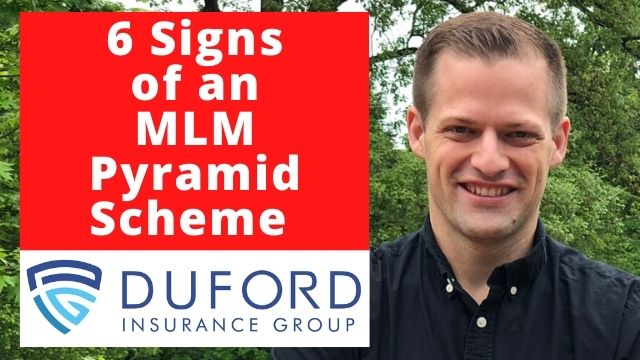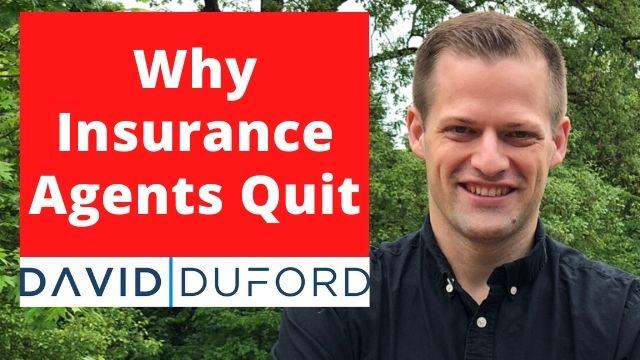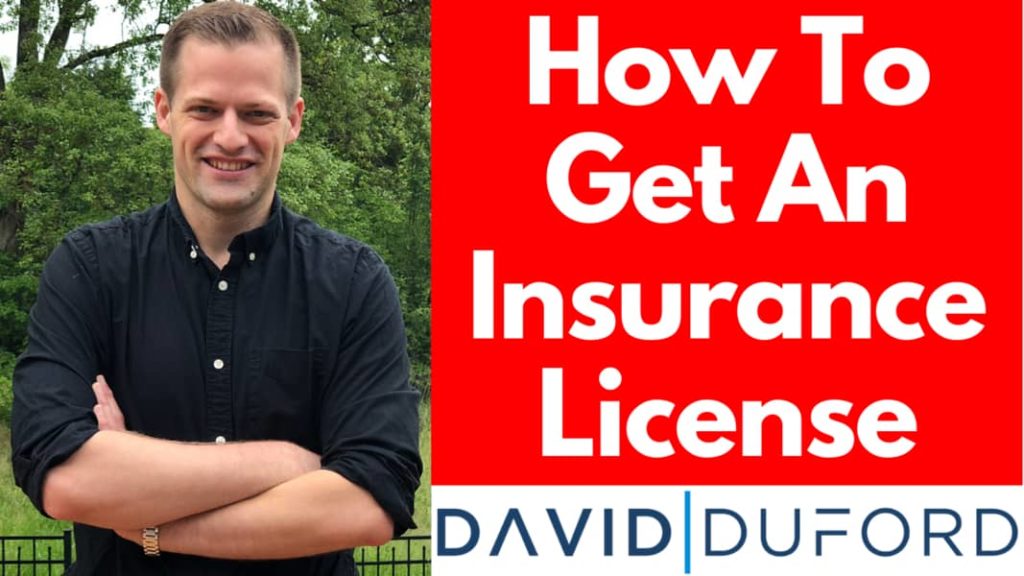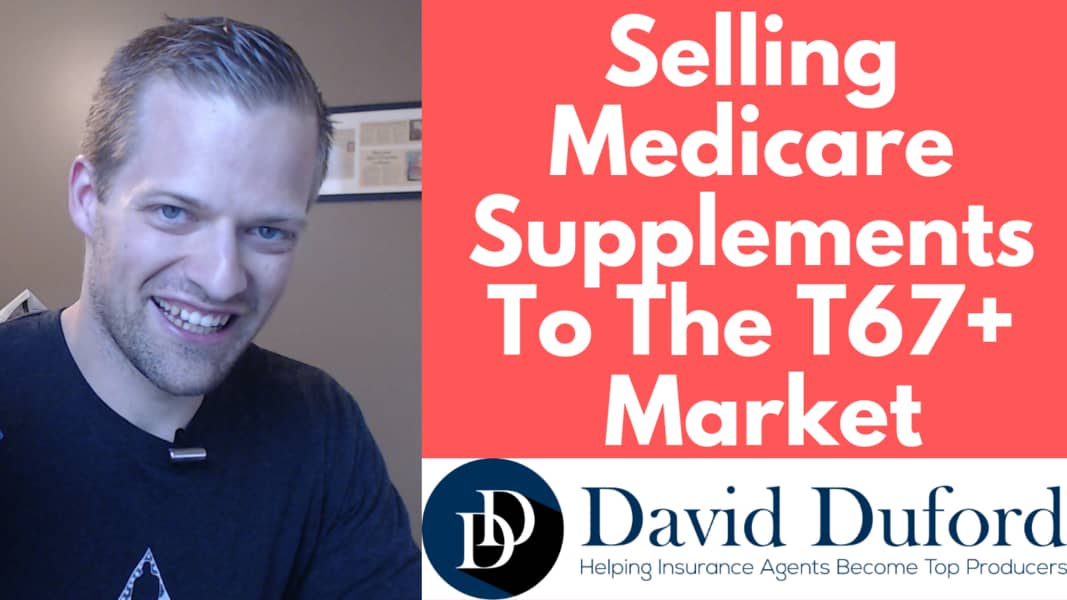Are you interested in selling Medicare Supplements?
If so, you should give serious consideration to focusing your marketing and selling efforts to the little-known-yet-lucrative “Turning 67 And Older” Medicare Supplement market.
Unlike seniors who are turning 65 and getting on Medicare for the first time, the Turning 67+ market offers unique sales opportunities, along with cross-selling opportunities as well.
The purpose of this article is to give you a full analysis into the basics of Medicare, the different markets you can target, and why I think targeting a turning 67 and older marketplace is a great strategy to produce all sorts of business.
Overview of Today’s Topic
The first thing we’re going to discuss are the basics of Medicare.
We will answer why it’s a great market, and why an agent may want to consider targeting it.
Next, we’ll talk about the difference between targeting people who are just starting Medicare versus those who’ve had a Medicare Supplement for several years.
It’s essential to understand this difference in the mentality behind both.
Then, I’ll explain why turning 67 markets are fantastic and a potentially easier route for a starting agent in Medicare Supplements.
Next, we’ll talk about the income potential selling Medicare Supplements, followed by the sales strategy that we use to sell Medicare face-to-face as well as the lead generation strategies that you have at your disposal.
Finally, I’ll detail some cross-sell opportunities that you may experience.
Basic of Medicare

Let’s start breaking down the basics of Medicare first.
Medicare is the Federally-funded health insurance program for people who are 65 and older. Also, it is for those who have been on disability after a period of time.
It provides a basic level of health insurance for hospitalization and physician care.
Medicare has gaps in coverage (and our opportunity)
Your Part A is hospitalization, and your Part B is going to be doctor-related bills, equipment, etc. Then, you’ll also have your Part D for prescription coverage.
The critical thing to understand is that on its own, Medicare is not comprehensive.
Medicare recipients have the potential for large, out-of-pocket deductibles due if hospitalized. In addition, Medicare only covers 80% of Part B expenses, meaning Medicare recipients must pay the 20% copay, which has no ceiling.
The potential for large out-of-pocket expenses drives interest in millions of Medicare recipients in owning a Supplement. They want total elimination of out-of-pocket risks due to being on a fixed-income.
And this is where our opportunity as insurance agents comes in.
2 Options For Supplemental Medicare Coverage
However, seniors have more options than Medicare Supplements to reduce out-of-pocket hospitalization and doctor expenses.
Let’s get a simple overview of both options.
1. Medicare Supplements
As you know, the first supplemental option are Medicare Supplements.
That’s what we’re going to spend most of this section discussing today. It’s also known as “Medigap coverage.”
Medicare Supplements cover the gaps in Medicare.
When put together with a Medicare plan, a Medicare Supplement plan provides almost total comprehensive coverage. Meaning there should be minimal financial obligation for deductibles and co-pays.
2. Medicare Advantage Plans

The second type of “supplemental” plan Medicare beneficiaries can opt for are called Medicare Advantage plans.
Medicare Advantage plans are similar to conventional health care plans.
There is out of pocket deductibles, co-pays for prescriptions and doctor visits, and have out-of-pocket maximums. In most cases, you’ll have to pay a monthly premium, too.
Medicare Advantage have geographic requirements to gain access to the plan.
Biggest Difference Selling Medicare Supplements Versus Medicare Advantage
Why not sell both Medicare Supplements AND Medicare Advantage?
While you can do that, the problem is that Medicare Advantage plans require a series of certification on a federal and carrier level before you can represent different plans.
Here’s what I mean.
First, you must pass AHIP with a 90% passing rate BEFORE appointing with most Medicare Advantage carriers. AND you need to re-certify annually.
Plus, you must certify with each Medicare Advantage carrier annually.
With Medicare Supplements, this is not required. As long as you meet your state’s health licensing requirements, you can sell Medicare Supplements to your heart’s content with any carrier that accepts your appointment.
Here’s my point.
For a new agent to selling Medicare products, there’s a LOT more that goes into selling Medicare Advantage than Medicare Supplements.
It’s much easier – and arguably more lucrative – to START selling Medicare Supplements out the gate… EXCLUSIVELY. There’s less information necessary to learn and MUCH less credentialing required.
And there’s a particular market of people I think new Medicare Supplement agents fair best selling… the “T-67+ Market.”
Medicare Supplement Markets: “Turning 65” Versus “Turning 67+”
Let’s take time to differentiate the “Turning 65” Medicare market versus the “Turning 67 And Older” Medicare market.
Turning 65 Medicare Market
Most new Medicare beneficiaries turn 65 when they start Medicare.
And approximately 6 to 12 months out, they begin receiving material from the government and insurance representatives on how Medicare works.
During this time, folks begin weighing the difference between Medicare Advantage and Medicare Supplements, deciding which program and carrier works best for their goals. And 3 to 6 months out, salespeople begin HEAVILY prospecting these folks for presentations to sell them one or the other.
As salespeople, our goal is to get in front of these people, educate them on what Medicare does. We try to make the complex simple, then offer a Medicare plan that best fits their goals.
It can be a Medicare Advantage or Medicare Supplement product. You want to offer them the product that fits best with whatever their goals are.
Turning 67 And Older Market
Let me switch gears and describe “Turning 67 And Older” market and why it’s MUCH different (and easier to start your Medicare Supplement sales career in).
The “turning 67 market” is where we have somebody who’s had Medicare for several years. At a minimum, most folks are turning 67 or older, into their 70s and even 80s.
The people we try to meet with have been in good health for the most part and love their Medicare Supplement.
Therein lies the opportunity…
You see, Medicare Supplement recipients receive rate increases on their birthdays and at other times of the year.
While they appreciate their Medicare Supplement, the pricing going up frustrates them.
Think about it. How would you feel about paying MORE for health insurance you RARELY ever use, ESPECIALLY if you’re on a fixed income?
With that in mind, our strategy is to get in front of these prospects face-to-face to inflame their frustration while showing them a way to save hundreds of dollars yearly. Let me explain.
Comparing Sales And Marketing Strategies Of The “Turning 65 Market” Versus “Turning 67 Market”
Now I shall attempt to persuade you as to why I think new agents to selling Medicare Supplements should FIRST consider selling to the T67+ market.
Medicare Is Complex To Folks Turning 65 (And More Complex To Sell)
For a new agent selling Medicare products to the turning 65 market, you will require a MUCH larger base of knowledge to perform exceptionally well.
You must have comfort explaining the nuances of Medicare, as your prospects are inundated, confused, and unsure what to do.
Further, if you live in a metro area, you will have to carry Medicare Advantage plans to maximize your sales opportunities. Without Medicare Advantage, you’ll leave many sales on the table. And that means more study and knowledge to acquire.
Couple that with becoming an independent agent with multiple carrier access, that’s a lot of technical knowledge for a newbie to learn, all before setting foot in the field with prospects!
Medicare Supplement Sales To The T67+ Market Is Simple
With the turning 67 market, the sales and mindset approach is TOTALLY different than the turning 65 market.
Here’s how I mean…
Easy To Sell, Standardized Product

With few exceptions, you don’t need additional credentialing to sell Medicare Supplements. Your health insurance license is all you need!
Second, Medicare Supplements are a cookie-cutter product. The federal government mandates specific plans and particular types of benefits that each plan has.
This means no matter WHAT company’s Medicare Supplement plan you’re selling, it’s completely IDENTICAL in terms of benefits to any other company’s plan.
This means that United Healthcare’s Plan F is identical to CIGNA’s Plan F, which is identical to New Era’s Plan F.
…But there is 1 difference…
…And that’s the PREMIUM paid (and your opportunity!).
Other than that, all Medicare Supplements MUST pay the same way. They MUST rubber stamp required payments to doctors and hospitals in EXACTLY the same way.
Mindset Of A T67+ Prospect
Now I want to describe the difference in mindset between a turning 65 prospect and a T67+ prospect.
Unlike a person new to Medicare, a T67+ Medicare Supplement prospect is mostly comfortable with Medicare, likes and believes in her Medicare Supplement, yet is agitated by the premium increases.
In this way, we give a presentation focused on educating the client on how Medicare Supplements work while persuading them that switching Supplement carriers is a fine idea.
You explain how they’ll have the SAME exact benefits, but at a lesser price.
Sometimes, you save these people hundreds of dollars annually. Very nice!
Of course, your prospects sincerely appreciate your work, as ALL are on a fixed income. And freeing up more money for the senior to spend on grandkids or use in other ways is a VERY good thing!
Here’s the point in all this…
For the NEW agent to Medicare, selling people who ALREADY are SOLD on Medicare Supplements is MUCH easier than taking a person who’s brand NEW to Medicare and confused by all the options and claims.
Couple that with less credentialing requirements and a market of MILLIONS growing by the day, you’ve got yourself an AWESOME product and market to sell!
Income Potential Selling Medicare Supplements
The bottom-line beauty of a Medicare Supplement policy is that it provides renewal commission.
Unlike life insurance products with high first-year commissions like final expense or mortgage protection, Medicare Supplements provide recurring commission over the course of 5 to 6 years.
Usually, most Medicare Supplements will pay an agent $250 to $300 annually over the 5 or 6 years of the policy.
Then, if you renew them on a new Medicare Supplement, then you’ll get to start that whole process over again!
The idea is that if you build a large book of business, you can have a substantial passive income beyond just servicing your business before ever getting out of bed.
For example, if you work over three years and build a clientele of 500 Medicare Supplement clients, you’re making $125,000 to $150,000/year (for the next six years) without EVER having to write the next piece of business. It’s hard to believe, but that’s how this business works!
Medicare Supplements provide the opportunity for insurance agents to live a passive-income lifestyle that so many people dream of.
This lifestyle is achievable for anybody who puts their mind to it and works hard over a multiyear period.
Medicare Supplements Sales Strategy
Let’s say, at this point, you’re sold on the idea of selling Medicare Supplement to people turning 67 or older.
What do you do from there? How do you actually present?
In this section, I’ll give you a brief overview of what a sales presentation looks like when you’re selling somebody who’s turning 67.
To start, I break down my sales presentations, for all the insurance products that I sell, into a four-part presentation:
1. Build rapport and establish yourself as the expert.
2. Pre-qualify the client.
3. Do the presentation and explain why it’s an advantage to the client.
4. You close the deal/ask for the business.
Building Rapport
When you first sit down with a Medicare Supplement prospect, you’ve got to break the ice.
You got to establish a little rapport, and you’ve got to establish yourself as the expert.
You want to tell them why it’s worth their time to listen to you and how you can possibly help them.
Pre-Qualifying
The second step is you go into pre-qualifying.
I’m very a big believer on pre-qualification before you really start talking about selling your prospect. Why?
You want to know ALL of the objections that could possibly manifest to cause a deal not go through.
You want to ask those tough questions ahead of time to figure out if this person is a qualified prospect or an unqualified suspect.
When it comes to Medicare Supplements, you’ve got to make sure they HAVE a Supplement. Hopefully, you did that before you set the appointment.
You must qualify the prospect’s health. You’ll know how to do that once you become familiar with the underwriting process of each Medicare Supplement carrier.
Then, you’ll gather information about why they like their Supplement and what they would like to change about it if they could.
Also, get information on how the pricing works, what they’re paying for the Supplement, and what they think about the price increases that they’ve gone through.
This information gives you all the facts and opinions necessary to establish where they stand.
With this information, you can figure out if the prospect would be open to looking at a plan that would do the same exact thing for a lesser price.
Show Them How You Can Help!
This transitions us to the third part of the presentation where we talk about how all Medicare Supplements are genuinely the same.
The best resource to use when presenting a Medicare Supplement replacement scenario is the “Medicare and You Handbook.”
You’ll want to turn to the particular page in the handbook that talks about Medicare Supplements and how the government mandates that all of them (Page 69 in the 2019 Handbook).
On that page, the handbook explains how Medicare Supplements ONLY differ in price.
There’s NO better resource to sell this stuff than to show your prospect what Uncle Sam says!
From there, you can go through the process of educating the client on how their particular plan works and then showing them cheaper alternatives.
In many cases, you be showing them a Plan F. A Plan G or a Plan N is also a great alternative that saves more money. In most cases, your client has a Plan F.
Close!
At the end of the presentation, close! Show how much your client can save through switching plans..
Now that they’re sold on the fact that all Medicare Supplement stuff is the same, ask for their business. Write them up on a new Supplement plan and get them approved. That’s it.
It’s pretty much a rinse-and-repeat type of business. This is not a very complicated type of product to sell.
You don’t have to know Medicare nearly as much as the person selling to the turning 65 market.
Remember, a person turning 65 will not know for sure if they’re going to go with the Medicare Supplement plan or Medicare Advantage plan.
Therefore, it only makes sense that they’re going to want as much information on both to make that decision.
This is not the case for the person turning 67.
In most cases, they’re already sold on having a Medicare Supplement. What they’re unhappy with is the fact that the price is going up.
It is our job is to sell them on why switching Supplements do not cause any sort of disruption.
We want to show them that there’s a quality of service and how a new Supplement plan gives precisely the same thing by putting more money in their pockets.
The turning 67+ sales strategy requires a basic understanding of Medicare without a nuanced, technical understanding.
Remember, our main knowledge points are on what Medicare Supplements do and how we can get a better deal for our clients.
Now that you understand the sales strategy, let’s address lead generation strategy.
Top 3 Lead Generation Strategies
Lead generation is very similar across many different types of life insurance products in the senior market.
You can use direct mail to generate senior leads to sell Medicare Supplements to people turning 67 and older. That works wonderfully well.
You can also do telemarketing leads. A lot of agents that sell over the phone use telemarketing leads. It’s a cheap way to talk to a lot of people.
Also, you can definitely use it face to face, too. Again, it all works reasonably well.
Lastly, you can do some sort of seminar marketing, as well. I know a lot of people that do very well setting up seminars and selling Medicare Supplements that way.
Before we get to the wrap-up, let’s talk about the last point. I think this is really important to take some time to talk about cross-selling opportunities.
Cross-Selling Opportunities
For the record, cross-selling is something that should be reserved after you’ve established a level of mastery in your first product.
In this case, I wouldn’t think about cross-selling seriously until a year+ after getting really good at selling Medicare to people turning 67 and older.
At the point of mastery, the great thing is that you can go back to your book of business and sell them all sorts of products that appeal to a senior class of people.
Cross-Selling Product Examples
1. The first type of product you can look at selling is final expense.
Most people don’t have enough life insurance and want to have final expense coverage. For example, you can sell them final expense burial insurance and make a nice first-year-driven type of commission.
2. Also, many people you meet may not have Medicare Supplements.
For example, they might benefit from a hospital indemnity plan to help offset some of the costs associated with hospitalization that their Medicare Advantage plan doesn’t pay up front.
3. You can also sell other things like cancer insurance or critical illness insurance.
A lot of people have an appeal to that, as well.
4. There is going to be the rare opportunity to sell a large annuity.
Many people who are turning 65 to 67 have a 401k, and they may need it rolled over. Also, they may have it in something that’s not performing well.
For example, there’s an excellent opportunity to sell fixed-indexed annuities. That’s a program that we have to offer and can help you sell the big deals. We’re talking five-figure+ commissions with the larger ones.
There’s a lot of opportunity for other types of products beyond the Medicare Supplement space. Despite that, even if all you sold was Medicare Supplements over the course of five+ years, you’re going to do pretty well, too.
Final Thoughts

Medicare Supplements sales is a lucrative market. And focusing on the T-67+ market is a surefire way for a new Medicare Supplement agent to focus his energy.
A significant benefit of selling Medicare Supplements to people turning 67 is that you don’t have to know a lot about Medicare.
Also, you’re not selling Medicare versus Medicare Advantage versus Medicare Supplements nearly as much.
It makes life easier to turn this into a system a lot faster than having to have this requisite knowledge to perform successfully.
Further, the turning 67 market place offers the ability for an easier sales call.
The people are more approachable. They’re not nearly hit as hard as the turning 65 market is.
There’s a vast income potential. It is a rinse-and-repeat sales cycle with a straightforward purchase lead type of approach.
Finally, there’s great opportunity long-term to sell all sorts of other life insurance, annuity products, and other products to maximize the value of the senior gets out of their coverage.
I do hope that you enjoyed this training and you learned something new about selling Medicare Supplements to the turning 65 and 67 marketplaces.
To learn more about how to sell Medicare Supplements face-to-face to the T-67+ market in my agency, reach out and contact me here for more information.


January 03, 2023

January 03, 2023

January 03, 2023
